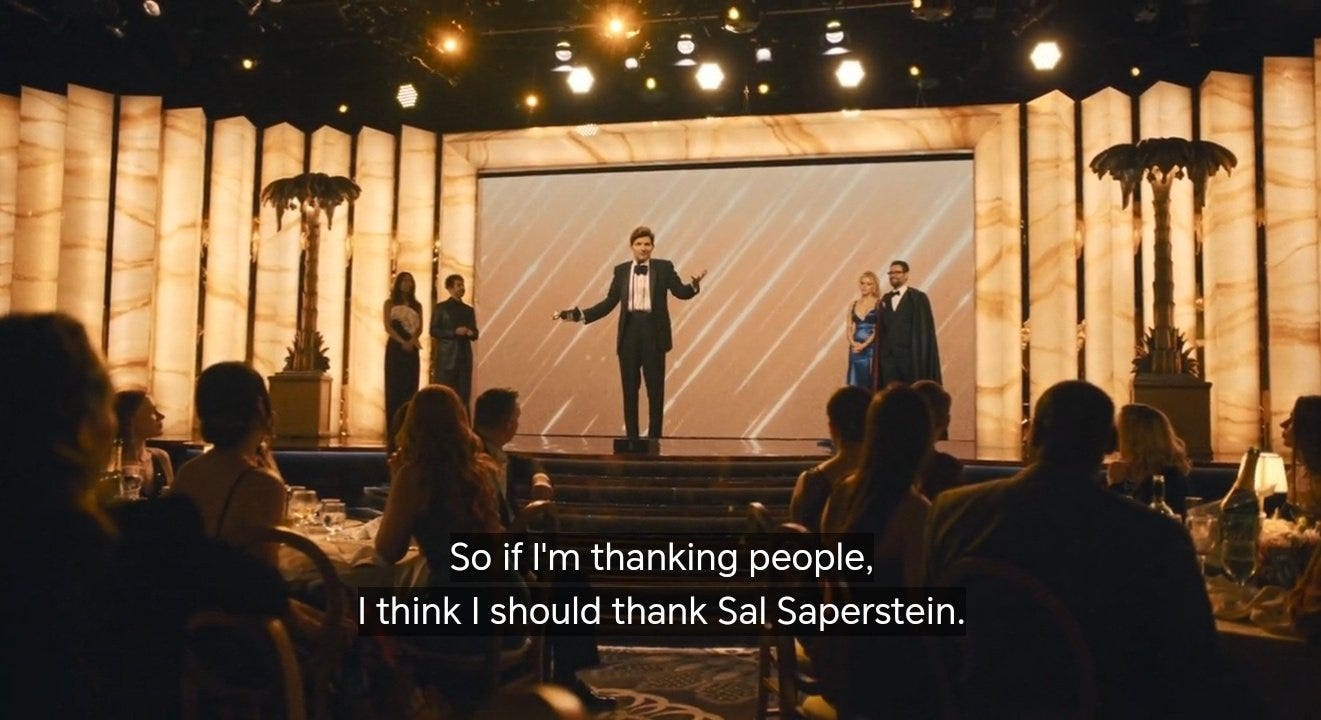What I Think About When I Think About Work
On competition, compensation, and credit
Lately, I’ve been thinking about a few undercurrents that shape how I work.
Not the frameworks, systems, or seemingly uncontrollable macroeconomic trends—but the deeper, default ‘grooves’ that influence how we show up as individuals: what pushes us, what sustains us, and what throws us off course.
Three themes keep resurfacing: competition, compensation, and credit.

Competition
In an early job, I had a boss who framed the addition of a colleague to the team as positive—not simply because it would expand our capacity to have the right conversations with more potential partners—but because he believed it would create “healthy competition” between the two of us and lead to the company closing more business overall.
I found the sentiment short-sighted. It instantly reminded me of the kind of dynamic where people are pitted against each other—siblings, teammates, or coworkers—not to grow together, but to prove who’s more worthy or deserving of attention.
My CEO assumed that people needed an external force to do their best work. Maybe that’s true for others, but I’ve always found I do my best work when:
I fully believe in the people I’m working with and working for, and
I’m part of a team that makes space for new ideas—even if they aren’t easily accepted or have to be aggressively debated first.
When those things have been present, I’ve felt invincible—and that there was an abundance of opportunity for everyone.
Competition, to me, has always implied scarcity (at least at work). And scarcity can often bring out the worst in me—and in others.
For reflection: What’s your stance on competition in the workplace? What’s your default setting? How could it help your business or career? How could it hinder it?
Compensation
When I worked for others, I rarely worked on commission despite leading business development. Without a doubt, I left money on the table. Occasionally I wonder how much, but I never do the accounting.
I firmly believe that when a company wins a piece of business, it’s always a team effort. I may have quarterbacked the pitch or proposal, but I was never the only one in the room. The idea that I’d be the only one compensated when we won the business felt completely misaligned with how I wanted to lead.
In negotiations early in my career, people tried to turn this on me—implying that if I didn’t want commission, I must not believe in my ability to close. But that wasn’t the case at all. I simply believed the better way of doing business was to operate by the same principles as the rest of the team. It also allowed me to make clear that if we were going after a piece of business, it was because I thought it was right for the company—not just my bank account.
Compensation functions differently for me now as a business owner. These days it’s less about salary negotiations and more about how I price our services—but the same philosophy drives me.
For reflection: What matters most to you when it comes to compensation? Is it getting top dollar every time? Is it making sure your partner feels the number is fair? Is it something else?
Side note: I didn’t realize until a few years later that some colleagues didn’t know I’d foregone commission. Let that be a reminder to thoughtfully communicate your values. You cannot expect people to be mind readers.
Credit
How much does it matter to you that your name is on a piece of work? Would you fight for the credit—or quietly let it go?
I was watching Episode 8 of The Studio earlier this month, and let’s just say Matt Remick (Seth Rogen) cares a lot about getting his recognition. It made me think about my own relationship with credit. How far would I go to make sure people knew my role in an award-winning project?
I like to think a personal, heartfelt thank-you would suffice—but I’m sure the warmth of the limelight wouldn’t hurt either. Ha.
In all seriousness, being a business owner means walking away from scheduled praise (and critique). I no longer get 360 reviews, have a manager who’s (hopefully) tracking my development, or receive shout-outs during staff meetings for weekend pushes.
Credit looks different now. It shows up in word-of-mouth referrals years after a project. In repeat clients. In quick, thoughtful comments in the midst of work. It’s the quiet, self-acknowledgment that I’m still going—some days stronger than others—seven years later.
For reflection: How do you want to be recognized for the work you do? What are some of the subtle ways you’re already getting credit for the work you’re putting in?
When it comes to how you show up in your work—
How much of your drive is about being seen, being paid, or being better? And what might shift if one of those became less central?
There are no right answers. No wrong ones either. And certainly no final ones.
Years—and entire careers—later, I’m still learning things about past versions of myself.
— ALC


Juicy topics ALC. I’ve never been much for competition. I want to win but I don’t like that that means others loose. I’m too collectivist for that. Hence - my work now is, I wish when we win. Other competitors lose bc they didn’t perform as well, but because we took it away from them. On compensation - also never asked for a raise. Never negotiated pay. Walked away from bonuses to try new risky jobs. I’m sure compensation comes when you do your best work, either where you are, or others see you and value your time. Most people don’t want to pay bc it’s about what they can afford and not what value you bring. So hard to disaggregate value from money - but maybe I think about it as opportunity cost if my time. Some projects I would do for free - and have. Others you couldn’t pay me enough haha. So just make sure you are valuing your own time. And you’ll walk away when you feel it isn’t aligned. Credit - ohh boy. Only you need to know what you really did; but, doesn’t help to not take credit when credit is due. In a world where having a voice matters, it’s more about standing in your own power and knowledge and sharing it freely versus feeling like humility is a greater good.
Glad you’re here writing :) what fun we can opine like this! Keep it coming!